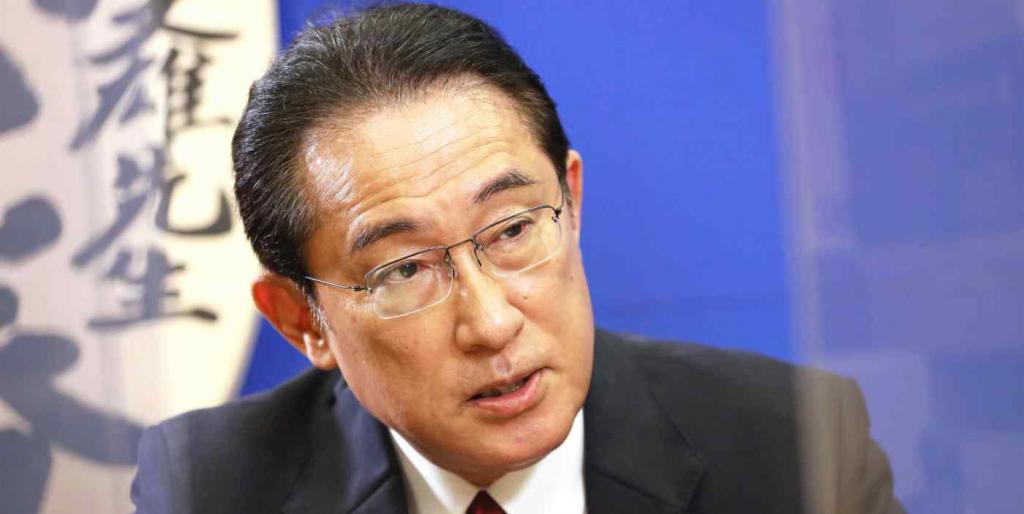Li Ruoyu is a special researcher of the Center for Japanese Studies, a key research base for regional and country studies in Sichuan Province

As the new president of Japan's Liberal Democratic Party, Kishida was elected as the 100th prime minister of Japan at the provisional diet on October 4. Because Kishida had been foreign minister for a long time and was seen as a moderate within the Liberal Democratic Party, there were widespread expectations of the foreign policy of his neighbors. However, less than two weeks after taking office, Kishida, in the name of prime minister, offered sacrifices to the Yasukuni Shrine, which housed 14 World War II Class A war criminals. Whether this move, which is obviously not conducive to easing Japan's relations with the victims of World War II, means The "transformation" of Kishida has also become the focus of media attention.
In the LDP presidential election process, Kishida was moderate compared to other candidates, but the so-called "moderate" that is, "not prominent" to the crowd, somewhat similar to what the ancients called "hometown wishes". Therefore, the policy of the Kishida regime will be closer to the mainstream of the Liberal Democratic Party represented by Shinzo Abe and Taro Aso, including peripheral foreign policy. Kishida Fumio relied on the power of conservative factions to finally defeat the popular Taro Kono, which made him even more adept at Abe, Aso and other faction leaders. As a result, in the team formed by Kishida, the Aso faction and the Hosoda faction of Abe occupied more key positions than the Kishida faction he led.
Although Kishida has been elected prime minister, the real challenges he faces are still to come. Since the LDP ultimately chose Kishida, who represents the interests of the faction, rather than Kono, which is the favorite of the people, there is a mood of punishment for the LDP in the presidential election. Against this backdrop, Kishida's cabinet reached a new low in recent years when it was first established. The support rating for the Asahi Shimbun poll was only 45 percent, down from 59 percent at the beginning of Abe's second cabinet and 65 percent at the time of the "opening" of Suga's cabinet.
Leading the LDP to win the House election at the end of the month is the long-standing political bottom line of the Kishida regime. However, judging from the current situation, the LDP's electoral situation is obviously not optimistic, and a large loss of seats seems inevitable. In the face of a worrying election, the criteria for "winning" the election are even more important to Kishida than to the specific number of seats. If the current 276 seats are maintained as the criterion for victory, it can be said that "winning" is an impossible task. But if a single majority of 233 seats is used as the winning criterion, Kishida will have 43 seats to tolerate errors. Even if the LDP suffers an unexpected defeat, as long as the number of seats in the Komeito Party, the ruling ally with a favorable electoral situation, the formation of the cabinet should be no problem. If this situation is acceptable, then Kishida Fumio is already invincible.
How the LDP defines the criteria for "winning the election" will be at stake for Kishida's prime minister's future, and only Abe and other party leaders will have the final interpretation. This also made Kishida, at least in the early days of his reign, have to pursue the strategy of "Xiao Zhi Cao Sui". Therefore, it is not surprising that Kishida's recent actions have the shadow of a big man behind them.
Kishida was not enthusiastic about visiting the Yasukuni Shrine, and he had never visited the Shrine during a sensitive period for many years. Offering sacrifices to the Yasukuni Shrine in the name of the Prime Minister is exactly the same trick that Shinzo Abe has inherited, and Yoshihide Suga, who was single-handedly supported by Abe to come to power, is also playing this trick. Kishida's unusual move was more like a submission to Abe. The highly concerned Fukushima nuclear sewage discharge decision also followed the previous government. From the perspective of the LDP's internal mechanics, the "political inertia" of the Kishida regime on related issues can be well explained.
Assessing the foreign policy of kishida's cabinet around it will undoubtedly require more patience, because kishida will only be able to form a long-term cabinet after the House of Representatives election. If the election is favorable to the LDP, Kishida, who is slowly gaining a foothold, will have more say in the face of conservative party leaders, and then the dovish tradition of the "Hongchikai" will have a chance to appear. Once the election situation is unfavorable, the party boss pushes Kishida out to "carry the pot", and there is no need to discuss the policy of the Kishida cabinet. In short, whether it is to ask for gods or to sacrifice ghosts, at this stage, Kishida Fumio's heart is probably only the matter of the general election. (Editor-in-charge: Wang Xin)